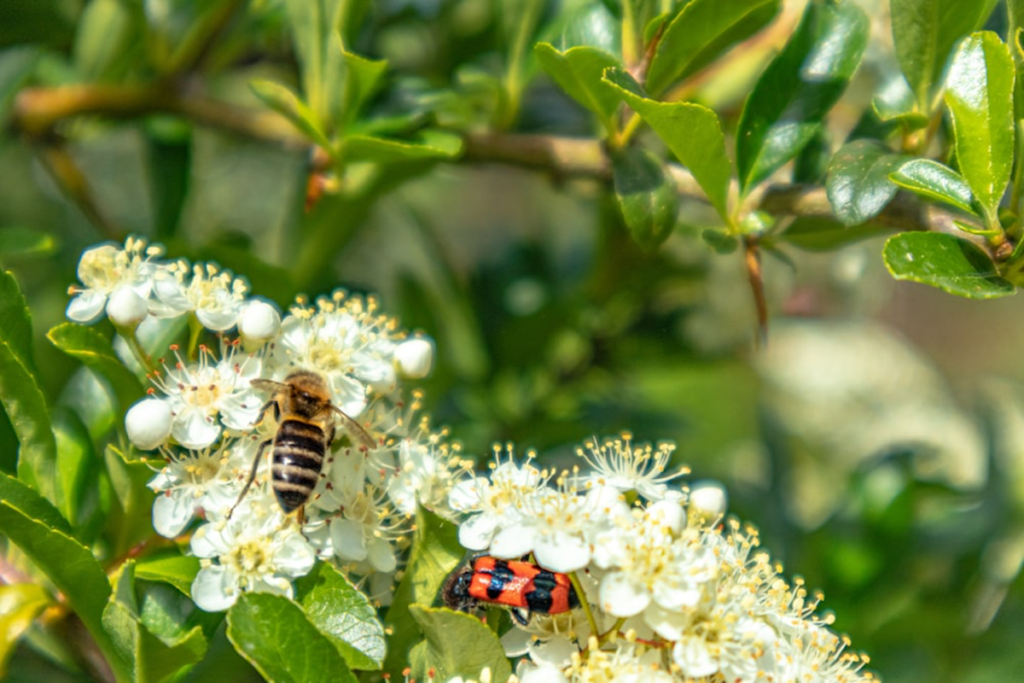Have you ever opened your back door, ready for some relaxation outside, only to find a few bees buzzing around? While bees are a necessary part of our eco-system and generally beautiful creatures, they can present a real life-threatening issue for people with severe allergies. For those who experience this, you may need a way to manage them.
Your first instinct might be to enlist the services of the best pest control Melbourne has to offer. The right team can quickly remove them so there’s no risk to anyone. Or perhaps you feel you want to leave them be, since they do so much for the environment? Is there a natural way to keep them in your garden and away from your home? Let’s discuss all your options.
Bees—Why People Fear Them
Many people fear bees, and with good reason. When a bee stings you, it produces histamine in the human body. While this might just be a mild irritation to some people, it can be life-threatening to others.
Research has revealed that bee stings can be as deadly as snake bites in Australia, resulting in twice as many hospital admissions. When a bee stings a person who is severely allergic to the histamine, their body goes into anaphylaxis and this could result in death. So, why not just get rid of them altogether?
How Are Bees Beneficial to the Environment?
Bees, like all other creatures in nature, serve a purpose. Bees, when they’re not buzzing around your home, are exceptional pollinators. The most significant contribution they make to our world is their pollination of three-quarters of the world’s plants and crops.
This makes up about 90% of the world’s food. If crops are not properly pollinated, they can’t bear fruit or produce seeds with which to grow new plants. This means we REALLY need bees. The answer then is to find a solution that lets both species coexist on the planet, safely.
A Natural Alternative to Keep Bees in the Garden
Ideally, you want bees to pollinate the plants in your garden or your fruit trees. But of course, you want them to avoid your home. Let’s look at a few natural options to keep bees from entering your personal space.
Citronella Candles
Place a few citronella candles close to your back or front door. The smell of citronella will mask the kitchen odours that might be attracting the bees. Citronella is also a good mosquito deterrent, so it’s a double win.
Plant Marigolds in Windowsills
If you have bees coming in through a particular window, invest in a few small pots of marigolds. Marigolds, while a beautiful flower, actually have very strong odour that bees don’t appreciate. You can also plant a few near your swimming pool so you can lounge there in peace.
Distilled Vinegar
Another odour not favoured by bees is the smell of vinegar. You can place small open containers of white distilled vinegar in windowsills or near doors. A plus here is that fruit flies are also not firm favourites of vinegar, so you’ll be keeping your fruit safe as well.
Cinnamon
While you might enjoy the spicy, sweet aroma of cinnamon, bees don’t. You can sprinkle some cinnamon powder around areas close to your home or entertainment area. Don’t sprinkle cinnamon directly onto bees. Rather mix a few teaspoons in a cup of water and spray it around the area.
Peppermint
Many insects such as spiders and flies dislike the smell of peppermint. Bees are no different. An easy way to keep bees out of your home is to plant peppermint along its perimeter. Does that sound like an awful amount of work? Reward yourself by using it in your tea!
The Last Option
Like people, bee colonies will thrive if they find an area they love. If your bees are moving out of the garden and into a crevice or open crack along your wall, it could become a problem. As the colonies grow so does the weight of the hive. Honey, waste, and even wax can cause damage and start seeping through to the interior of your home. The bees themselves might also become invasive and move into your home.
When this happens, it’s time to get in touch with a professional pest control service that can assist with the problem. They will advise the best course of action, which could include relocation or safe removal.
Important Tips to Remember When You Have Bees
If you have bees in your garden and you wish to keep them there, you should always take note of the following tips:
- Don’t try and relocate or move a hive without professional help. Professionals have the right protective gear and equipment to keep themselves and the bees safe.
- Ask your doctor to recommend anti-histamine especially suited to bee stings. If you have pets, it’s advisable to get one for them too.
- Bees are not pets. They are wild creatures that belong in gardens, so don’t move them indoors or leave a hive that’s forming in an area where animals and people spend a lot of time.
Conclusion
You have many options to keep your family and pets safe from bee stings. If you’re unable to keep these buzzing little pollinators out of your home with our natural solutions, it might be time to contact a professional. There are solutions that benefit both you and the bees!




